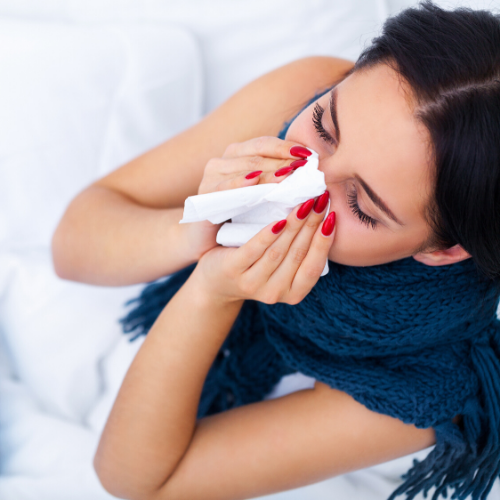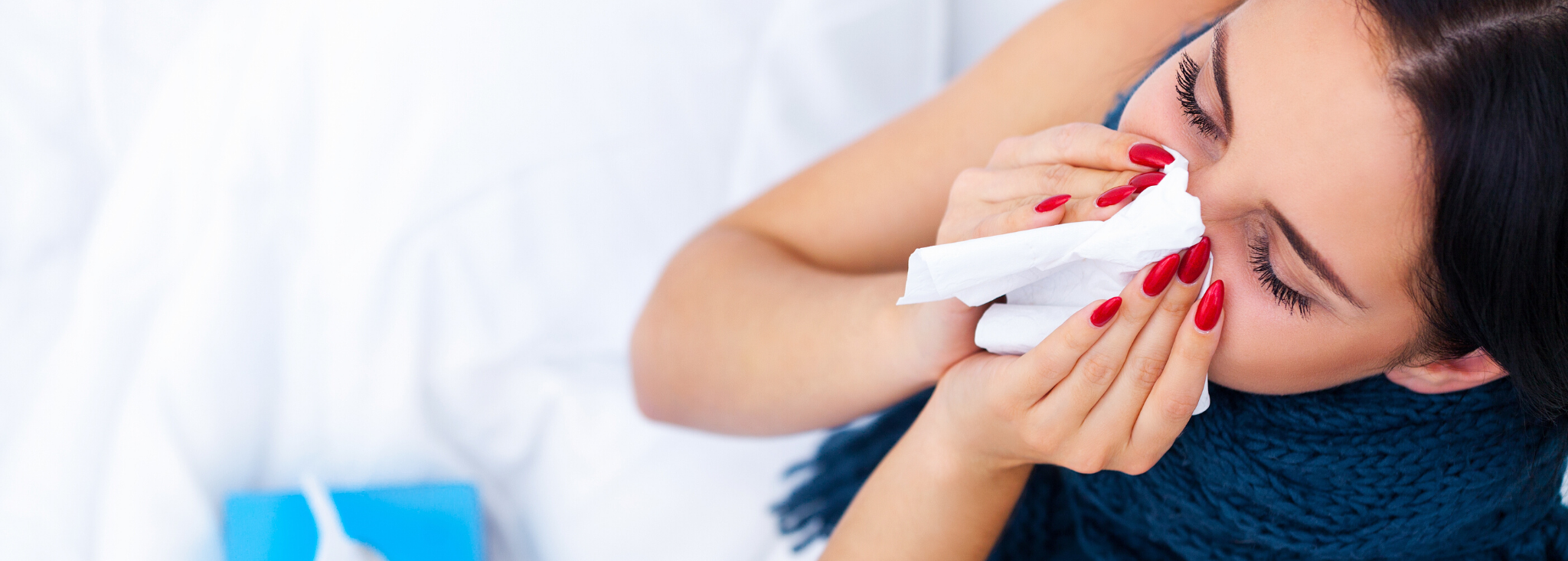Cold and Flu and What to Do
Getting sick can be scary and especially when you or a loved one lives with diabetes. As the body tries to fight off the virus, blood glucose levels elevate, causing rapid and dangerous highs. And when you’re not feeling well, you may find it difficult to keep down fluids or even eat, causing you to go too low. Then there’s the issue of medicine—which to take and how to dose for it if needed. There’s a lot to consider, but rest assured! We’ve talked to doctors about what is recommended in terms of planning ahead and the protocol if you or your loved one are faced with a bug. While this season brings with it challenges to staying healthy, here are some helpful guidelines when facing off with the cold or flu.
What’s the difference between a cold and flu?
A cold is a milder respiratory infection than the flu. While both can cause a sore throat, cough, runny nose and congestion, the flu is usually accompanied by body aches, fever and lasts much longer than a common cold.
As someone living with diabetes or as a caretaker, you should plan ahead so you’re ready not only for the cold, a common and frequent ailment but also, the more unruly cousin—the flu, who outstays his welcome and can cause serious havoc if left unchecked.
Sick Day Plan
- lists of recommended medications you can take to alleviate certain symptoms
- the contact of your doctor and when / where they can be reached during regular hours as well as holiday time
- a plan of action (if / then scenarios), how often you should check your blood glucose levels (BGLs) and when you should contact a doctor.
Food + drink stock up
- diet, clear sodas, without caffeine
- clear broths
- sugar-free popsicles
- saltines
- glucose gel (fast-acting to treat lows)
- low-calorie sports drinks (for fast-acting sugars and electrolytes)
- regular ginger ale
- cereals (like oatmeal)
Get your gear
- glucagon kit
- ketone strips/meter
- thermometer
- Tylenol* (or Acetaminophen) for fever
- cold/flu medication
Get a flu shot
These are usually offered in the fall and are highly recommended for anyone who is at higher risk for complications if they contract influenza.
Wash your hands
You’ve heard it a million times, but it really is one of the best ways to prevent contracting a virus or bacterial infection.
What to do if you do get a cold or flu
Stay hydrated
Drink 8 ounces of water or clear broth every hour
Stay nourished
Eat 15 g of carbs every hour if you are running low, (frequent testing should tell you though)
Stay vigilant about your BGLs
Check your BGLs every four hours.
When you’re fighting off an infection, your blood glucose levels tend to run a little higher, thus necessitating more insulin than usual. But if you’re severely dehydrated, are vomiting or are simply unable to eat, your BGLs may drop. Also, aspirin in large doses can lower blood glucose levels while decongestants can raise BGLs. The bottom line—you should check BGL more frequently if you’re sick and always read your labels.
Make sure you aren’t in DKA
Check for ketones, if your BGL is over 13.3 mmol/L240 mg/dL. Call your doctor if it shows any ketones.
Check your temperature
Check your temperature regularly. If you are running at 103°F, you should contact a doctor.
Take your prescribed medicine
When choosing between pills and syrup, choose pills, because pills are less likely to have carbs. There are sugar-free options in syrups as well, so always check your label and dose insulin accordingly. While not food, you have to dose for meds (if they have carbs)!
You can treat the flu with antiviral prescription medications that can ease symptoms and shorten the duration of your illness, such as oseltamivir (Tamiflu). For best results, contact your doctor as soon as you notice symptoms as treatment is most effective when started right away.
*Warning Tylenol (or Acetaminophen) the fever / pain reducer is known for interfering with Dexcom CGM readings, so avoid or rely instead on regular blood glucose testing for accuracy.
Verified by Natalie H. Strand, MD—Dr. Nat was diagnosed with type 1 diabetes at the age of 12. A Mayo Clinic trained chronic pain specialist, she is the director of integrative medicine at Freedom Pain Hospital. After her post-graduate fellowship, Dr. Nat competed in and won The Amazing Race on CBS. She has also worked closely with leading diabetes organizations to promote exercise and healthy living among people living with diabetes.
Learn More About Cold and Flu






